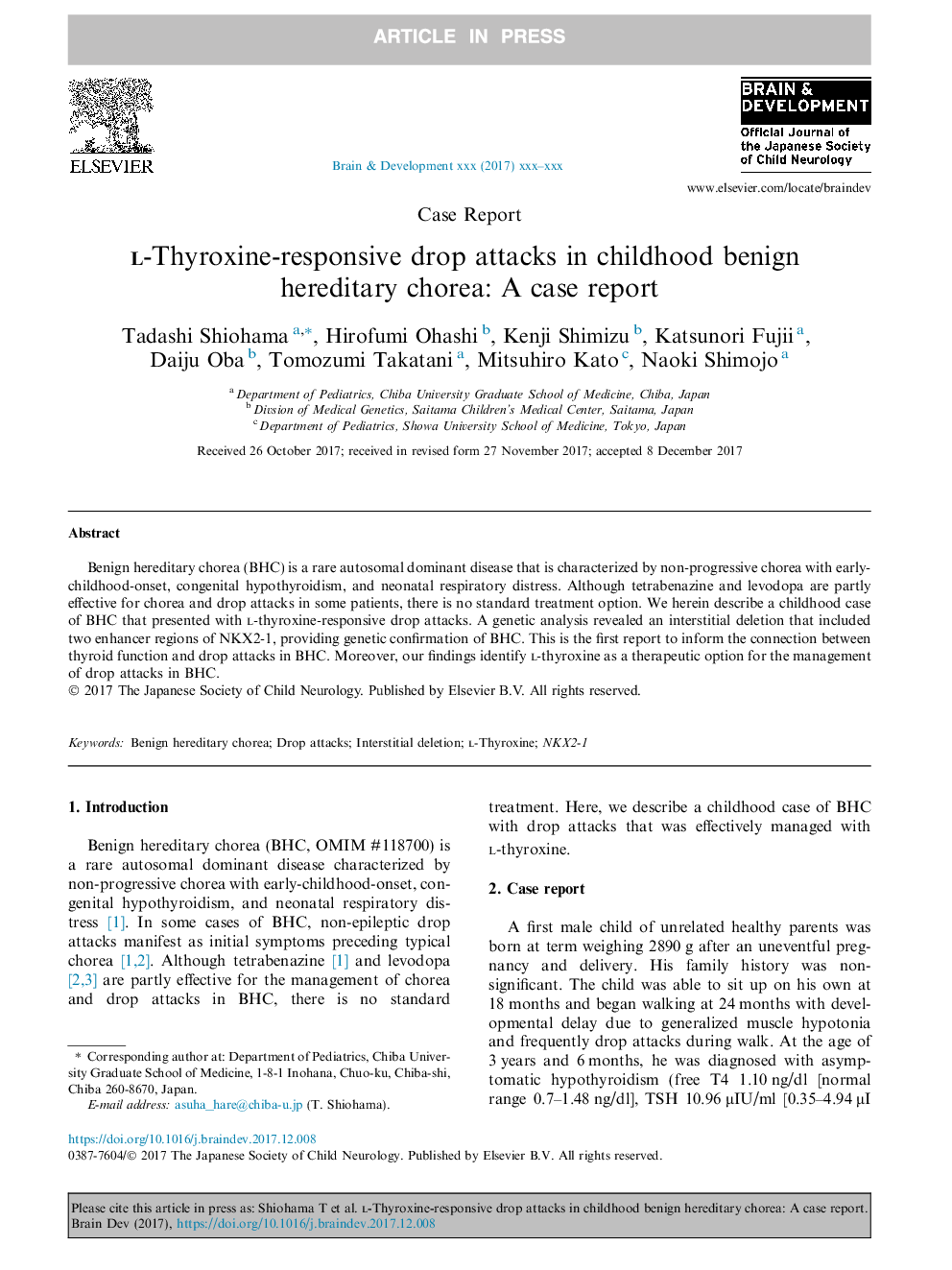| Article ID | Journal | Published Year | Pages | File Type |
|---|---|---|---|---|
| 8681238 | Brain and Development | 2018 | 4 Pages |
Abstract
Benign hereditary chorea (BHC) is a rare autosomal dominant disease that is characterized by non-progressive chorea with early-childhood-onset, congenital hypothyroidism, and neonatal respiratory distress. Although tetrabenazine and levodopa are partly effective for chorea and drop attacks in some patients, there is no standard treatment option. We herein describe a childhood case of BHC that presented with l-thyroxine-responsive drop attacks. A genetic analysis revealed an interstitial deletion that included two enhancer regions of NKX2-1, providing genetic confirmation of BHC. This is the first report to inform the connection between thyroid function and drop attacks in BHC. Moreover, our findings identify l-thyroxine as a therapeutic option for the management of drop attacks in BHC.
Related Topics
Life Sciences
Neuroscience
Developmental Neuroscience
Authors
Tadashi Shiohama, Hirofumi Ohashi, Kenji Shimizu, Katsunori Fujii, Daiju Oba, Tomozumi Takatani, Mitsuhiro Kato, Naoki Shimojo,
